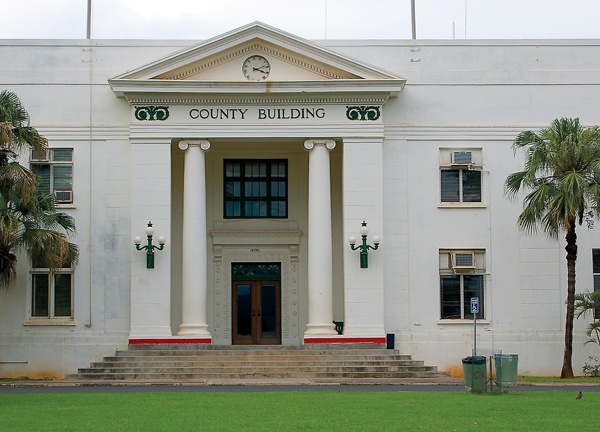LIHUE — The Kauai County Council’s Finance Committee deferred for two weeks a proposal that represents the last stage of a three-year property tax reform to address inequities and create a fair system going forward. “Bill 2495 really is an
LIHUE — The Kauai County Council’s Finance Committee deferred for two weeks a proposal that represents the last stage of a three-year property tax reform to address inequities and create a fair system going forward.
“Bill 2495 really is an attempt to bring back some equity to how real property taxes are distributed, particularly to the homeowner,” Finance Director Steve Hunt said at a council meeting Wednesday. He added the bill is intended to be revenue neutral — the proposal is not supposed to bring more money to the county.
The bill increases the exemption for the homestead class to $100,000 from the current $48,000. For seniors age 60 and older, the exemption would be $120,000, and for seniors age 70 or older the exemption would be $140,000.
According to his latest estimates, Hunt said the exemptions for resident homeowners, including seniors, may have to be increased another $30,000 to keep the bill revenue-neutral.
The bill exempts properties leased by the Department of Hawaiian Home Lands from any taxes. Currently, Hawaiian homesteaders pay zero for the first seven years of their lease and then pay $25 annually. Altogether, the county collects $3,125 annually from 125 DHHL leaseholders.
But the county has had problems collecting taxes from DHHL leaseholders and spends too much time doing it, so the administration is asking the council to eliminate the minimum tax for Hawaiian homesteaders, Hunt said.
Many representatives from credit unions were present at the meeting. The proposal raises the $25 minimum tax that credit unions pay for being a nonprofit to $1,500.
There are nine buildings used by credit unions on Kauai. Council Vice Chair Nadine Nakamura said the nine buildings used by the credit unions on Kauai range from $316,000 to $7.9 million.
Committee Chair Tim Bynum said if credit unions were paying regular taxes, the county would be collecting an additional $134,000, but under this proposal, will be taking $13,500. Councilman Mel Rapozo received no support from his colleagues on an amendment to keep the credit unions paying $25.
Another amendment that would have ensured owners of transient vacation rentals would still qualify for the homeowner’s exemption was voted down by the council.
Use vs. zoning
Last year, as a part of the ongoing tax reform, Ordinance 920 eliminated the apartment tax class; added a TVR class; increased home exemptions; changed the way the homestead tax cap is calculated; and consolidated land and structure assessments into a single assessment.
The ordinance also changed how the county places properties into different tax classes.
“The highest and best use of the property determines its tax class,” Hunt said. “It is the actual use, not the zoning, that determines what tax rates would be applicable.”
The homestead class pays $3.05 per $1,000 of assessed valued, while the residential class pays $6.75. By comparison, the commercial rate is $8.
In the last few weeks, those who were unaware of the changes and were running a business out of their homes were surprised when they received their tax bill. Even with an exemption, some of those assessments have nearly tripled.
Bynum said Gini Martin of Wailua, who has a preschool/day-care business in her home, told him her taxes nearly tripled, even though her school occupies only 600 square feet. Martin said she may be forced to close the school.
Bynum said he is working on an amendment to Bill 2495, related to in-home day-care facilities.
When the bill comes back to the council’s agenda, likely on Aug. 21, committee members will have one last opportunity to introduce amendments before sending it with a recommendation to the full council for second and final reading.
Bynum, who introduced the bill by request of the administration, said the bill needs to pass “relatively soon” for the changes to be implemented into next fiscal year.
• Léo Azambuja, staff writer, can be reached at 245-0452 or lazambuja@thegardenisland.com


